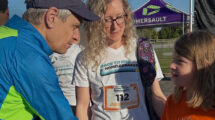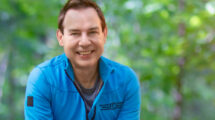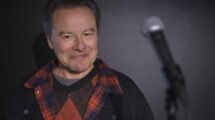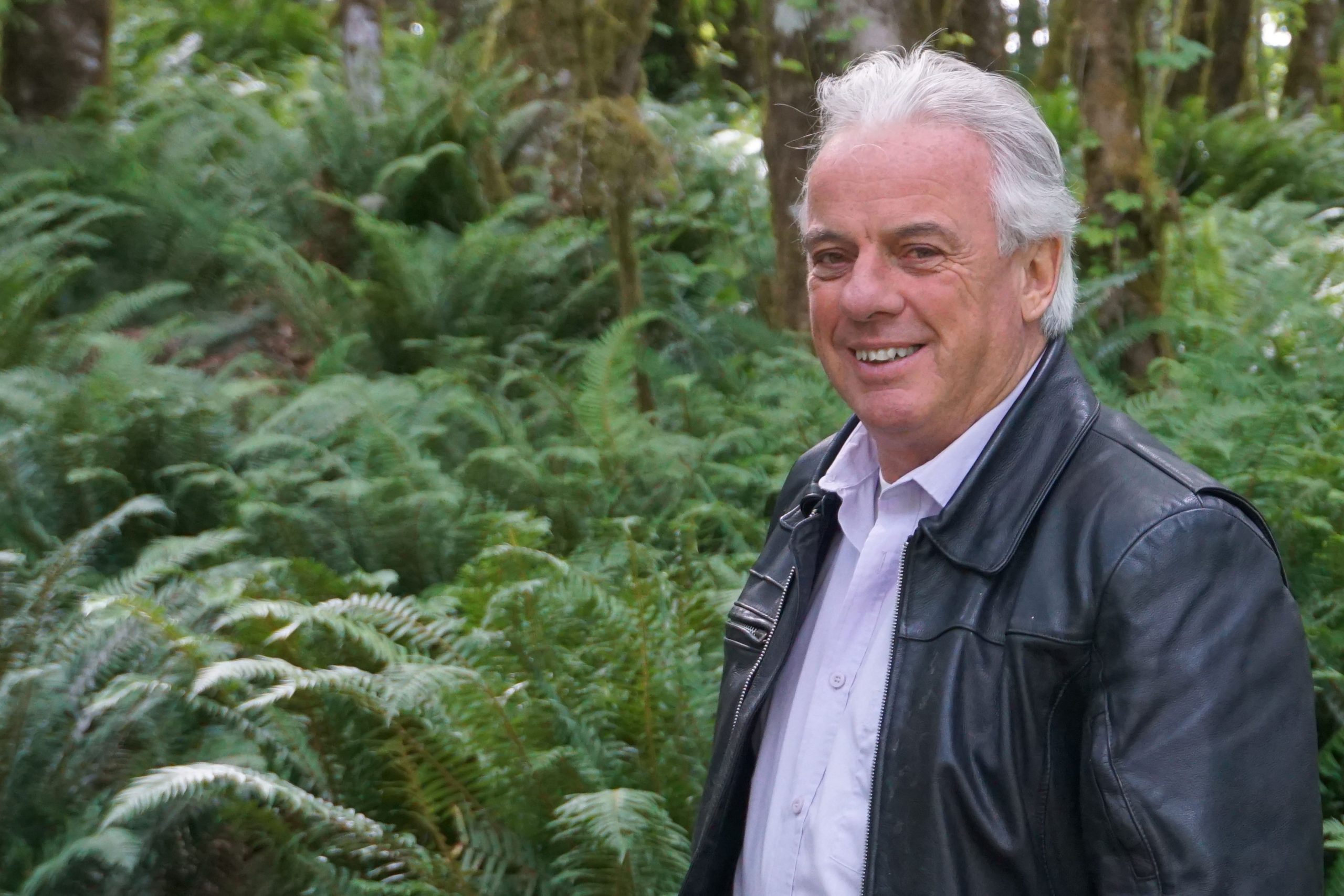
Natural interpreter – The stellar life of Bob McDonald
Profile By Iris Winston
Bob McDonald is currently circling in space, somewhere between Mars and Jupiter. More accurately, the asteroid named after him is in orbit, while its human namesake continues to host CBC radio’s award-winning program Quirks & Quarks and popularize science to more than 800,000 listeners each Saturday.
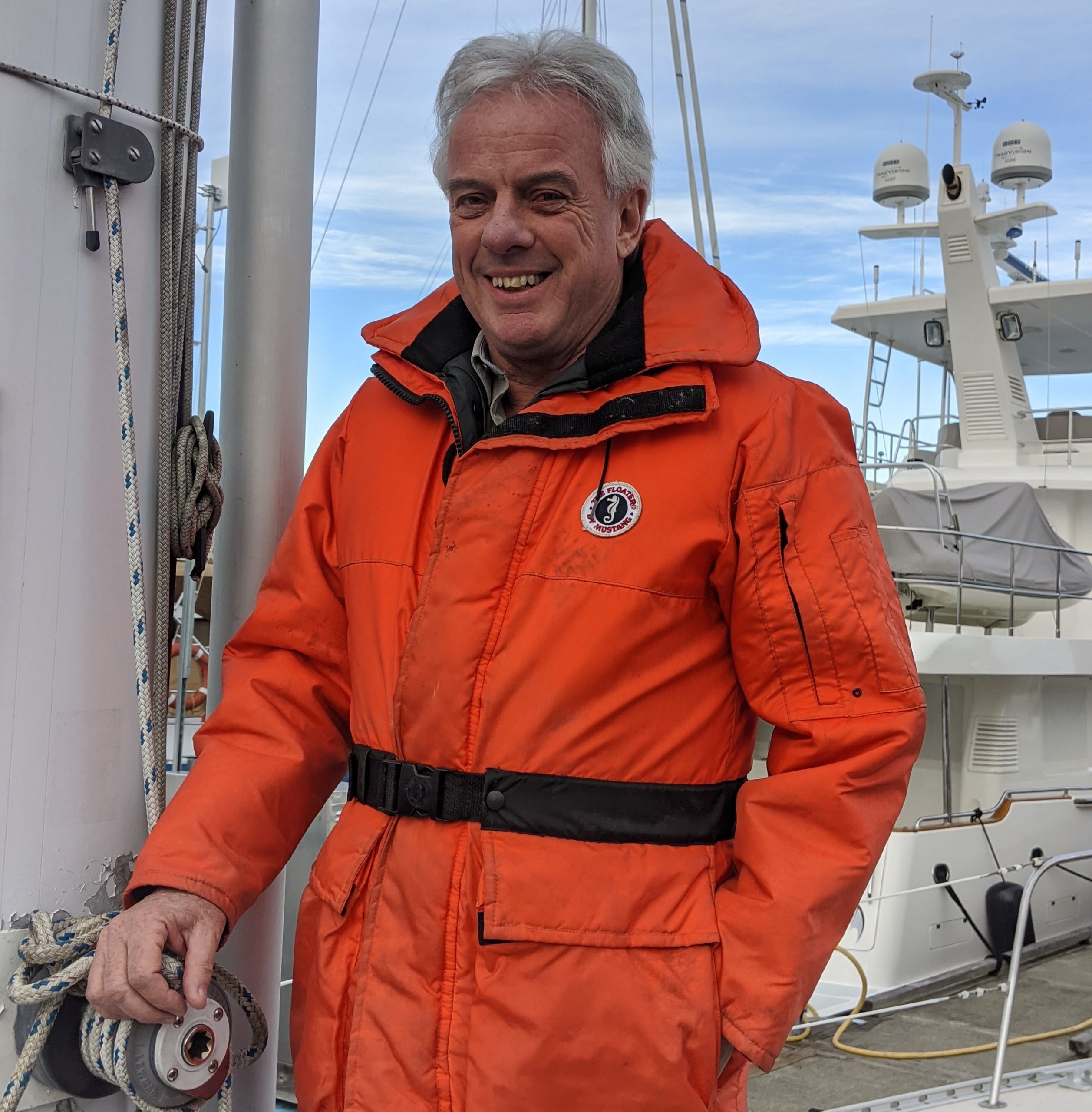 “I was stunned to have an asteroid named after me,” says McDonald, who first heard the news in 2014 after returning from a sailing trip around Vancouver Island. “It’s a real honour and it’s very humbling, because the whole history of naming astronomical objects after people goes way back to Galileo and Copernicus and the great astronomers.”
“I was stunned to have an asteroid named after me,” says McDonald, who first heard the news in 2014 after returning from a sailing trip around Vancouver Island. “It’s a real honour and it’s very humbling, because the whole history of naming astronomical objects after people goes way back to Galileo and Copernicus and the great astronomers.”
In accordance with astronomical tradition, the discoverer of an asteroid may name it. In this case, astronomer David Balaam, an observer at the National Research Council of Canada and the University of Victoria, chose the name, saying that he “couldn’t think of anyone more deserving of the honour than McDonald for his work popularizing astronomy and science in general in Canada.”
Making science accessible has been Bob’s focus for close to half a century. As well as having been the popular host of Quirks & Quarks since 1992, he has entertained and educated youngsters through public appearances, demonstrations and such children’s television programs as CBC’s Wonderstruck and TVO’s Heads Up! He has also written several books for adults and children and continues to be in demand as a science commentator on many fronts.
Along the way, he has collected numerous honours, including an Order of Canada, a Queen’s Jubilee medal, 12 honorary doctorates, two honorary college degrees, awards from the Natural Sciences and Engineering Research Council of Canada (NSERC), the Royal Canadian Institute and the Royal Society of Canada for communicating and promoting science, has been made an honorary life member of the Sigma Xi scientific research honour society and has been named to the Hall of Fame of his home town of Orillia, Ontario.
Despite the many accolades that have come his way through a stellar career, Bob still seems a little surprised at the recognition.
“I am constantly surprised when these things just fall out of the sky,” he says. “It’s always a shock and a deep honour. In fact, when I received the very first doctorate — it was from the University of Guelph in 2003 — that was the first time I choked up in front of an audience. I had never seen my name on a university diploma before.”
While he had spent some time at university in an arts program (focusing on English, Philosophy and Theatre), he dropped out before completing a degree. He says his choice of subject matter was based on his talents in high school rather than his main interests.
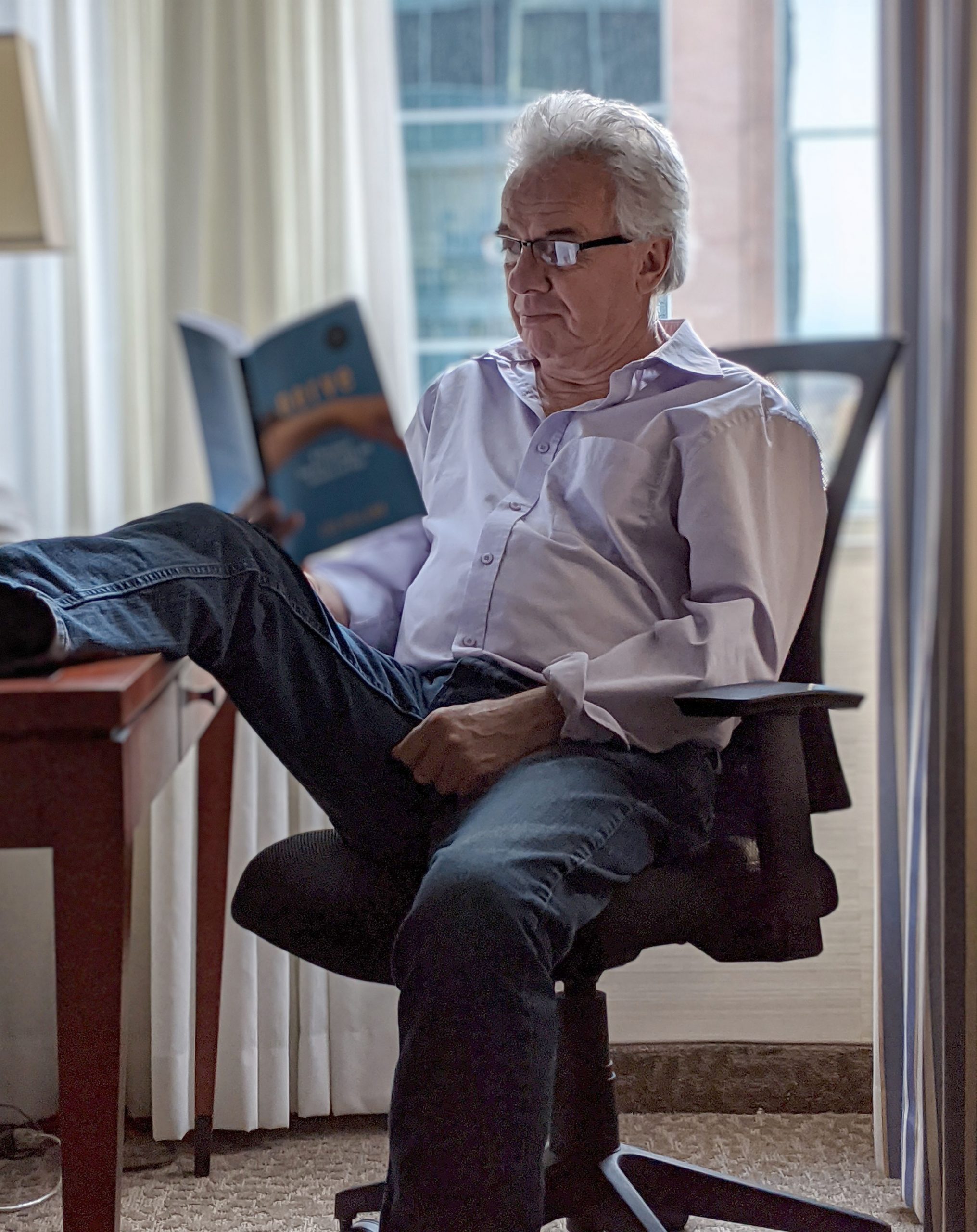
“I always did well in English, writing essays and telling stories, and I liked theatre,” he says. “In high school, I played the lead in Oklahoma. I thought that theatre would be my future, but science has always intrigued me. I grew up in the space age, so science was always in the forefront and I was always excited by it. But I wasn’t very good at mathematics or at chemistry and memorizing formulas in high school. So, I didn’t think I would be good at doing science, even though I always liked what science does.”
As it turns out, his being intrigued and curious about science while not being a practising scientist has proved to be a perfect combination.
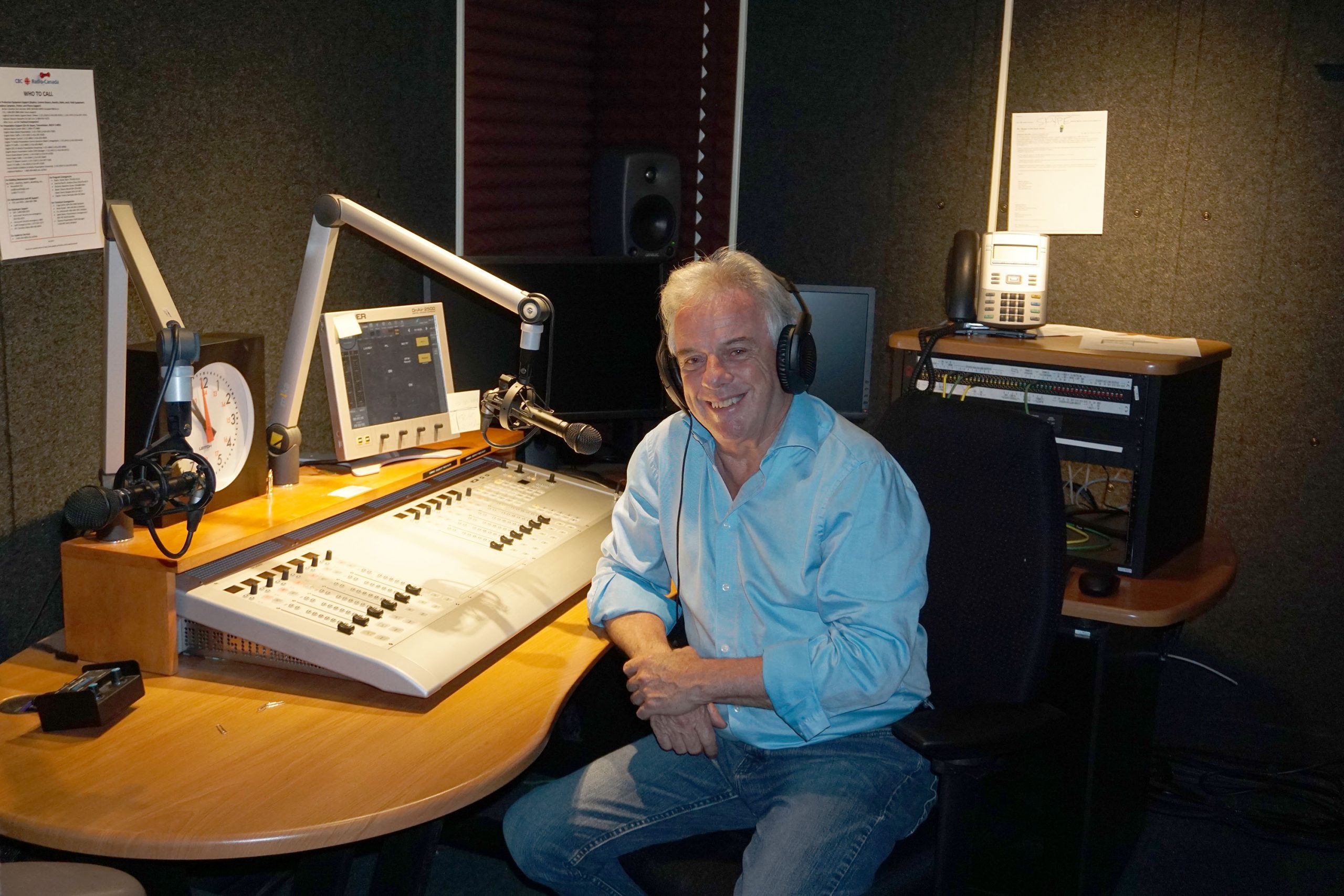 “It’s made it possible for me to put together my two interests of performance and science,” he says. “I try to make science entertaining, whether it’s in Quirks & Quarks on radio, or when I’m on television or before live audiences or with kids. I make science theatrical and it’s really fun to be able to do that.”
“It’s made it possible for me to put together my two interests of performance and science,” he says. “I try to make science entertaining, whether it’s in Quirks & Quarks on radio, or when I’m on television or before live audiences or with kids. I make science theatrical and it’s really fun to be able to do that.”
“I also think that not being a scientist actually helps when it comes to trying to inspire the public about science,” he adds. “It makes me closer to the public side. If I were a scientist with all kinds of PhDs behind me, then a conversation with another scientist could get lost in all the jargon and language. But I’m one step back. I know enough science to have an intelligent conversation, but I can keep pulling it back into everyday language.”
Simply put, he says, he sees himself as “a bridge between scientists and the public. I think of myself as a translator. Science is a foreign language and I try to translate it into English.”
This special talent was first put to the test when he was just 22, he recalls. “My girlfriend at the time was a summer student host at the Ontario Science Centre. She said they would be looking for full-time people in the fall and made an appointment for me with the hiring manager. I filled out an application form — not that I had much to put on it in terms of a science background — and met the guy on his first day back from vacation, before he had had time to read any of the applications. I just talked his ear off saying that this would be a great place to work and how much I would love it.”
The result was that his enthusiasm got him the job and his continuing enthusiasm for every aspect of science rather than detailed planning has propelled his career ever since.
“I’ve never had a plan in my entire life,” says Bob, who was a truck driver before he began working as a demonstrator at the OSC science museum in 1973.
From there, he went on to watch and report on the National Aeronautics and Space Administration’s (NASA) first space probes in California, returning to Canada as host and co-producer of the Gemini award-winning children’s science program, Wonderstruck, before moving on to hosting Quirks & Quarks, as well as being involved with numerous other science-themed specials, including TVO’s popular kids’ show, Heads Up! which he wrote and hosted.
“Everything about science is always new,” Bob says with his ever present enthusiasm. “There is something we didn’t know before, almost every week. We’re finding out about how the universe works and it doesn’t matter whether we’re looking at the really big stuff at the edge of the universe where somebody found a big black hole, or we’re looking into the DNA of a cell and find the root of some disease. It’s all fascinating and it’s an ongoing process as we try to figure out our place in the universe.”
“It’s amazing to be alive through the studies of space and through a time when we’re actually going to other worlds,” he continues. “I was dreaming about this as a kid. It’s all fascinating. But we haven’t found a planet yet that’s like Earth. If we do, it will be very far away. I’ve really come to appreciate how special Planet Earth is. It’s the only planet where you can go outside and not wear a spacesuit, where you can breathe the air and drink the water. I guess I’m an environmentalist from an appreciative point of view.”
For Bob, contentedly single for a number of years, enjoying Planet Earth every day comes in various guises.
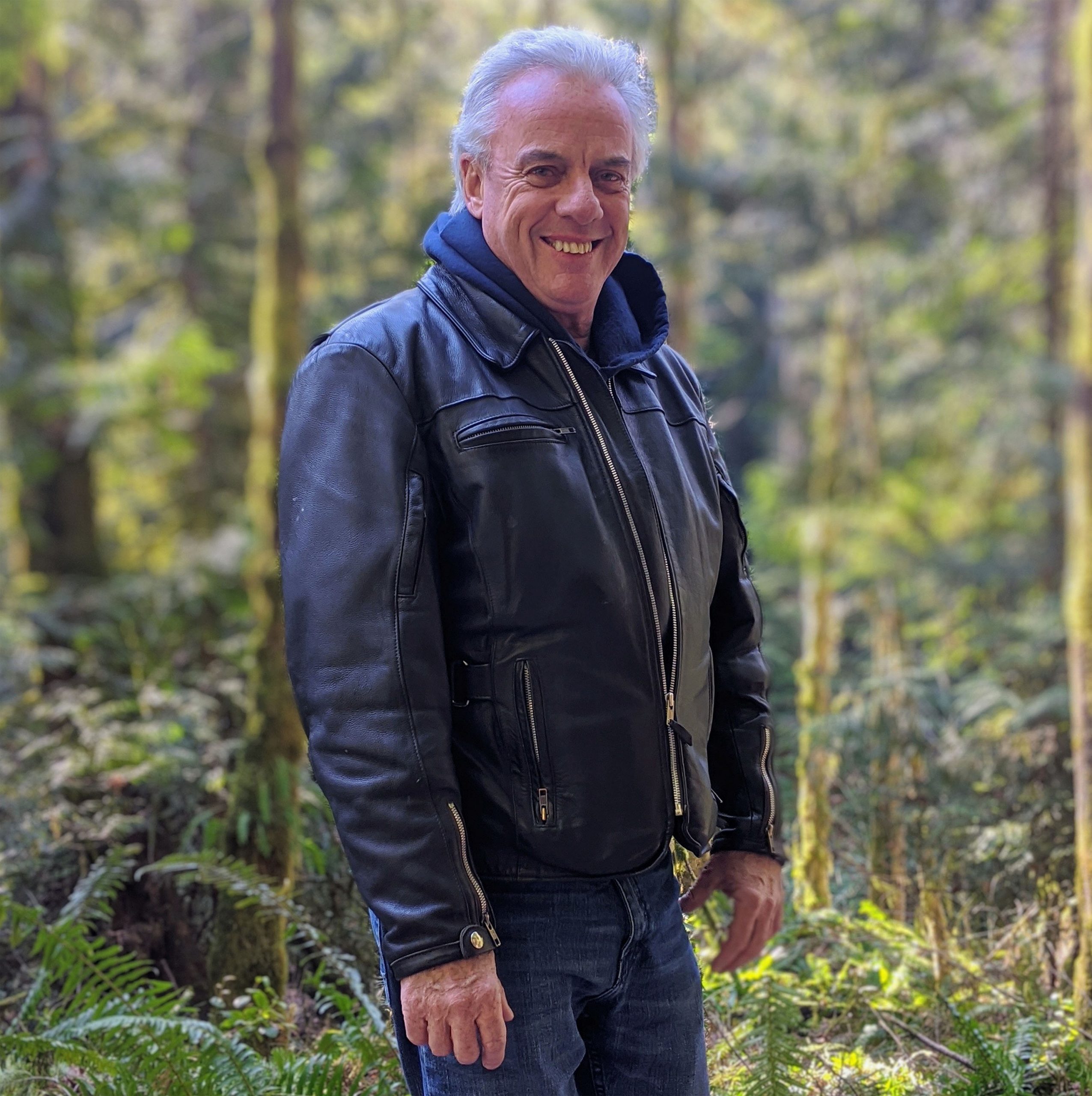 “Seeing as much of this planet before I die is really important to me,” he says. “I love exploring. I’ve been all over the world and around the world by myself once. I’m a huge fan of travel, even if there’s too much of the world to see in a lifetime. Travel is the best education you can get. You see how other people live and you really appreciate home and nature.”
“Seeing as much of this planet before I die is really important to me,” he says. “I love exploring. I’ve been all over the world and around the world by myself once. I’m a huge fan of travel, even if there’s too much of the world to see in a lifetime. Travel is the best education you can get. You see how other people live and you really appreciate home and nature.”
“When I’m at home, my modes of travel are mostly outdoors, by bicycle, motorcycle or boat,” says Bob, who spends much of his leisure time cruising in his 41-foot Morgan sailboat, taking long distance trips of as much as 15,000 kilometres on his Honda Goldwing motorcycle or simply riding his bicycle to the CBC studio to record an episode of Quirks.
“You learn to respect the wind and the waves and the tides when you’re on a sailboat. You feel them as you wrestle with them as you go from place to place. And when I’m on the motorcycle crossing mountains, I feel the cold over the top and the heat in the deserts and smell the wheat on the prairies. It’s a very outdoor sensual experience.”
A former Ontarian, who has lived in Victoria, B.C. since 2011, Bob’s non-plan for the future is to “jump at opportunities as they come to me and keep doing Quirks & Quarks until they tell me not to,” says the broadcaster and author of seven books.
“Quirks is such a wonderful program to work on. It’s right at the cutting edge of our knowledge. It’s an amazing team to work with. The latest news in science and they’re on it. I still pinch myself every year when the Nobel prizes come out and I’m talking to the winner of a Nobel prize. It’s still astounding. I feel so privileged.”
He also remains enthusiastic about entertaining and encouraging youngsters interested in science.
“They’re the future,” he says. “They’re the future decision makers, scientists and explorers. My favourite age group is the eight to twelve year-olds. They’re smart and capable of learning. They’re curious and honest. If you tell them something funny, they die laughing. If you’re not funny, they just stare at you. If you tell them something interesting, they say ‘Wow!’ and if you tell them to try something, they try it.”
“It’s important to inspire them at that age,” he adds. “It bothers me that science for the tweens has fallen off the board in the media. There are programs for little kids and for adults, but we’ve got to reach the middle kids before they get distracted with sex, drugs and rock ’n roll.”
As well as his children’s television programs, Bob’s ventures in this regard have included a number of books directed to young people. The most recent is An Earthling’s Guide to Outer Space: Everything You Ever Wanted to Know…
Written as a series of questions and answers — such queries as ‘Why are planets round?’ ‘Why do comets have tails?’ ‘How do you get around in space?’ — Bob has had considerable success with the format for the curious of all ages.
“I have some ideas to follow on and make it a series,” says Bob, who is waiting for further questions from junior research assistants (young readers) as he prepares to write his next book.
“Kids ask the greatest questions,” he says. “That’s what I need. The last good question I was asked was ‘Do farts smell in space?’”
(The answer is yes, but you may not be able to catch the odour because your nose will have frozen off if you try. The answer would be different if you were in a space station or a spacesuit, he explains.)
His enjoyment of the kids he meets on his tours is clear. While he is not a father himself, Bob sees the youngsters who grew up watching Wonderstruck and Heads Up! as akin to his offspring.
“I have people coming up to me when I’m on a book tour saying they used to watch me when they were kids,” he says. “Now, they’re doctors and scientists. Those are my children. They have kids of their own and they tell me they’re teaching their own kids science because I inspired them. That’s really rewarding for me.”
Books by Bob McDonald
An Earthling’s Guide to Outer Space: Everything You Ever Wanted to Know
Canadian Spacewalkers: Hadfield, MacLean and Williams Remember the Ultimate Adventure
Measuring the Earth with a Stick
Wonderstruck I
Wonderstruck II
Bob McDonald contributed to:
The Quirks and Quarks Question Book : 101 Answers to Listeners’ Questions
The Quirks and Quarks Guide to Space: 42 Questions (And Answers) to Life, the Universe and Everything
Nasty Brutish and Short: The Quirks and Quarks Guide to Animal Sex and Other Weird Behaviour



